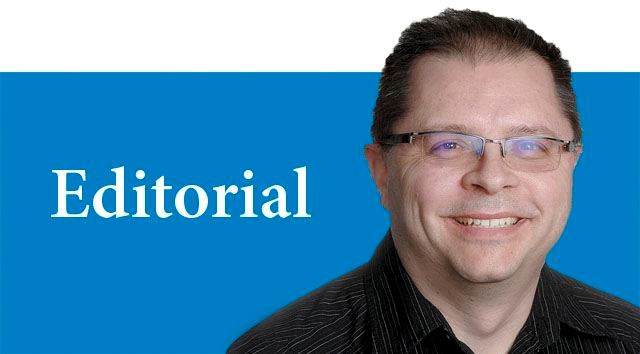In the modern era of identity politics, the politics can't be justified until the identity has been established.
In other words, you can't talk the talk unless you walk the walk.
When identity unravels, it throws all of the politics into doubt, regardless of the good that may have come as a result.
For author Joseph Boyden, who wrote and spoke powerfully and eloquently about the past and present of Canada's indigenous people, the revelation that his aboriginal ancestry is far less than he let on is a shame.
The shame partly belongs to him, for pretending to be something more than he truly is. Most of the shame, however, belongs to those who believe the revelation of his "real" identity discredits everything he has ever accomplished.
What nonsense.
There is no such thing as a "real" identity and it certainly can't be exclusively tied to one's race, gender, sexuality, religion, culture, geography or family background.
People who would impose identity on others based only on what they see are restricting individuals to live within the bounds of what their particular brand of identity politics dictates, not what that person decides for themselves to say or do.
The grip of identity politics has a fierce hold throughout society, throwing any kind of conflict into a black/white, right/wrong scenario, rejecting any kind of dialogue or compromise.
Individuals are either for Donald Trump or against him.
Anyone taking a wait-and-see approach is seen as weird or wishy-washy, both by the people who support him and for the people who despise him.
How tough can it be? He's either good or bad. He can't possibly be both.
Framing him - or anyone else - that way is ridiculous, of course.
He will be both a good president and a bad one, just like the other 43 men who held that office before him.
He may be better or worse than the others, but those are qualitative assessments.
Every politician has a mixed record of accomplishments and failures. Every adult that has ever got out of bed in the morning has made good decisions and bad ones, from how they spoke to their child over breakfast to how they drove to work to the choices they made on the job to how they expressed their love to their spouse when they got home.
Many have complained about how ridiculous identity has become, from the universities that insist their professors address students and each other by self-chosen pronouns to the women who demand to spell their gender as womyn because woman and women have man and men embedded in their title.
The student who insisted on being referred to as Your Majesty was correct to do so. Only when the artifice is exposed through mockery can people take a step back.
The solution is not to use the pronoun or not. The solution is to address students by the legal name on the course registry in all circumstances. It is neither respectful nor disrespectful. It is simply accurate and appropriate.
The challenge comes when the identity of important people, like Boyden, is thrown into disrepute. Individuals stuck in the either/or frame believe they must choose to accept or reject, ignoring the possibility of accepting portions of their identity and portions of their politics.
Doing so takes too much work, too much time devoted to thought and consideration.
UBC recently said it would allow John Furlong to speak, after first inviting him to the campus, then revoking that invitation. Furlong, who lived in Prince George for a time in the 1960s and 1970s, is best known as being the chief organizer of the 2010 Winter Olympics in Vancouver but he was also alleged to have abused students under his care during his teaching days in Burns Lake. Nothing has ever come of the allegations, but that hasn't stopped people from giving credence to them because it fits a broader narrative of identity politics surrounding white male educators working for the Catholic Church in remote parts of Canada and their aboriginal victims.
Even though Furlong taught at Immaculata elementary school and not a residential school, the allegations sound true therefore, to some individuals, they must be so.
Let the utter lack of evidence not stand in the way of a firm opinion supported by identity politics.
The continued persecution of Furlong stands in stark contrast to a man hawking the merits of naturopathic medicines despite being convicted of negligence after his infant son died of meningitis (David Stephan) or a woman who led the charge to compensate the victims of 9/11 until it was revealed she was nowhere near Ground Zero on Sept. 11, 2001 (Alician Esteve Head).
Our individual identities are far richer and more complicated than our politics.
Sadly, for some individuals, they see politics but refuse to see the people behind them.
-- Managing editor Neil Godbout



